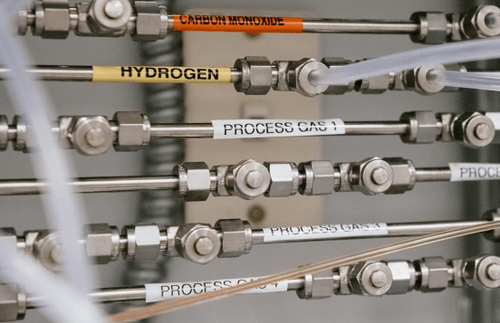Eden GeoPower, a Boston-based geologic hydrogen technology provider, is engaged in raising a Series A and has a timeline on developing a project in Minnesota, CEO and co-founder Paris Smalls told ReSource.
The Series A target is $40m, with $10m being supplied by existing investors, Smalls said. This round, the company is looking for stronger financial investors to join its strategic backers.
The company has two subsidiaries wholly owned by the parent: one oil and gas-focused and one climate-focused. The Series A is topco equity at the parent level.
Eden was one of 16 US Department of Energy-selected projects to receive funding to explore geologic hydrogen; the majority of the others are academic lab projects. Eden has raised some $13m in equity and $12m in grant funding to date.
Eden started as a geothermal resource developer, using abandoned oil and gas wells for production via electric fracking.
“We started seeing there were applications way beyond geothermal,” Smalls said. Early grant providers recommended using the electric fracking technology to go after geologic hydrogen reservoirs, replacing the less environmentally friendly hydraulic fracking process typically used.
A test site in Oman, where exposed iron-rich rock makes the country a potential future geologic hydrogen superpower, will de-risk Eden’s technology, Smalls said. Last year the US DOE convened the first Bilateral Engagement on Geologic Hydrogen in Oman.
Early developments are underway on a demonstration project in Tamarack, Minnesota, Smalls said. That location has the hollow-vein rocks that can produce geologic hydrogen.
“We likely won’t do anything there until after we have sufficiently de-risked the technology in Oman, and that should be happening in the next 8 months,” Smalls said. “There’s a good chance we’ll be the first people in the world to demonstrate this.”
Eden is not going after natural geologic hydrogen, but rather stimulating reactions to change the reservoir properties to make hydrogen underground, Small said.
The University of Minnesota is working with Eden on a carbon mineralization project, Smalls said. The company is also engaged with Minnesota-based mining company Talon Metals.
Revenue from mining, oil and gas
Eden has existing revenue streams from oil and gas customers in Texas and abroad, Smalls said, and has an office in Houston with an expanding team.
“People are paying us to go and stimulate a reservoir,” he said. “We’re using those opportunities to help us de-rick the technology.”
The technology has applications in geothermal development and mining, Smalls said. Those contracts have been paying for equipment.
Mining operations often include or are adjacent to rock that can be used to produce geologic hydrogen, thereby decarbonizing mining operations using both geothermal energy and geologic hydrogen, Smalls said.
“On our cap table right now we have one of the largest mining companies in the world, Anglo American,” Smalls said. “We do projects with BHP and other big mining companies as well; we see a lot of potential overlap with the mining industry because they are right on top of these rocks.
Anti-fracking
Eden is currently going through the process of permitting for a mining project in Idaho, in collaboration with Idaho National Labs, Smalls said.
In doing so the company had to submit a public letter explaining the project and addressing environmental concerns.
“We’re employing a new technology that can mitigate all the issues [typically associated with fracking],” Small said.
With electric fracturing of rocks, there is no groundwater contamination or high-pressure water injection that cause the kind of seismic and water quality issues that anger people.






